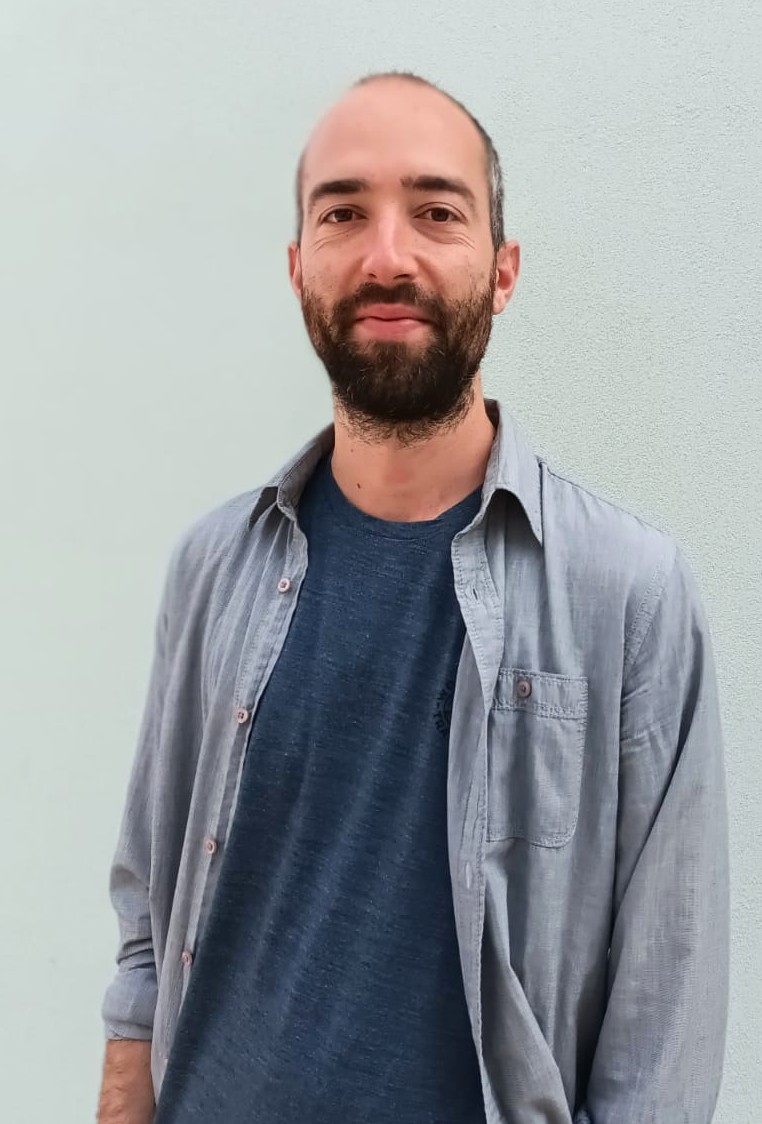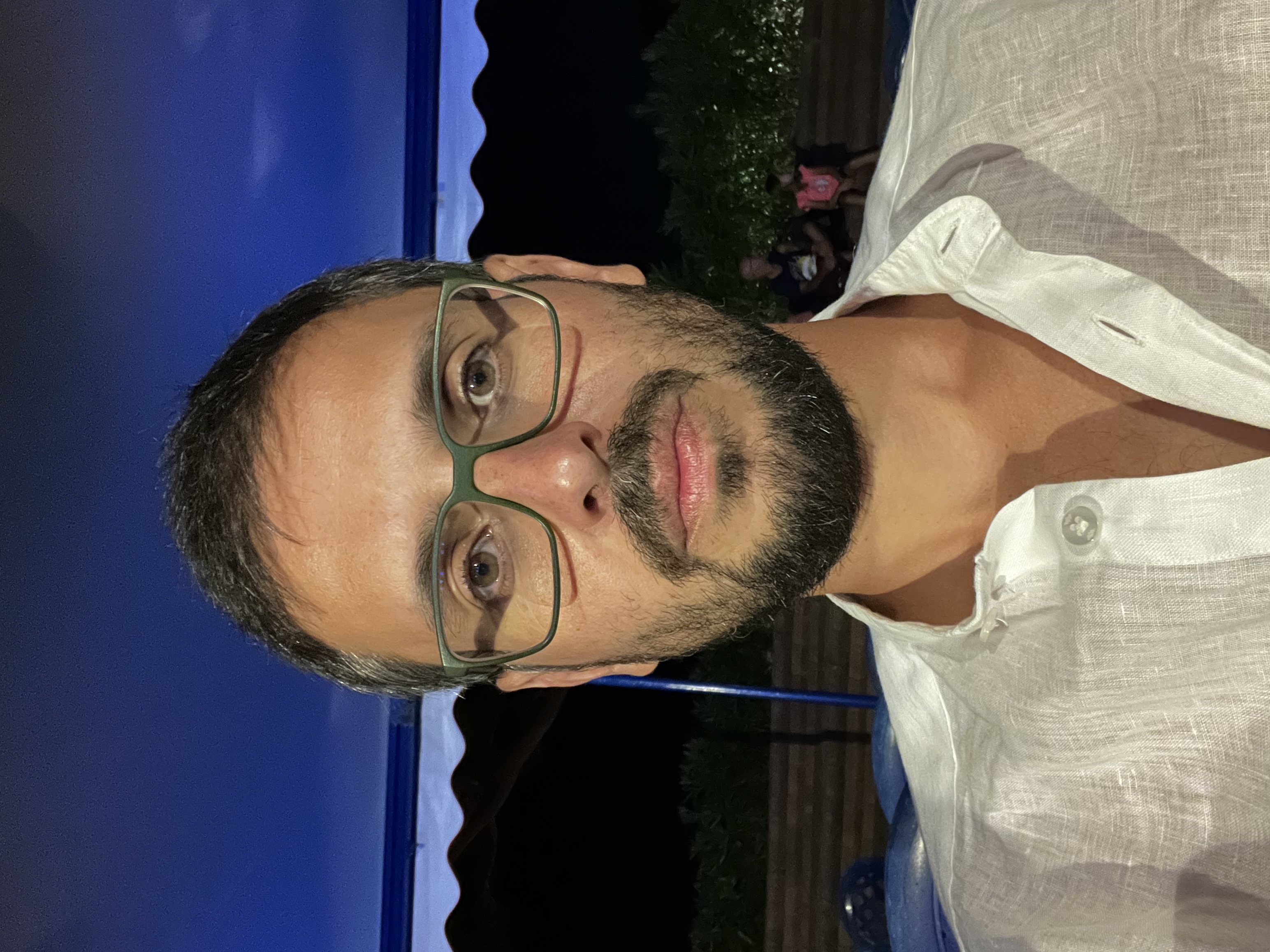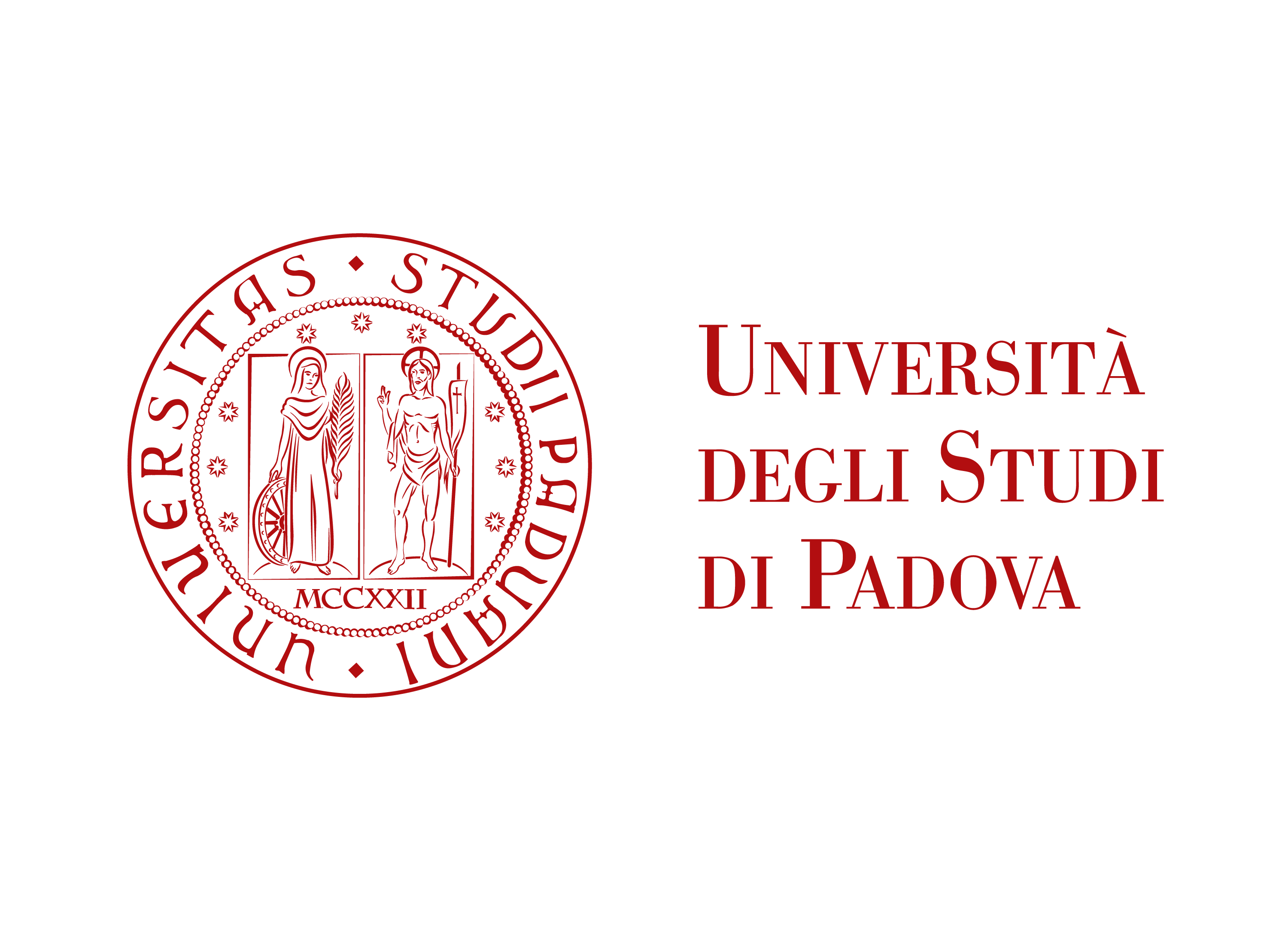| Important Dates: | |
|---|---|
| Application opens*: | February 1, 2024 |
| Application closes: | June 1, 2024 |
| Arrival of participants: | June 30, 2024 |
| Start of event: | July 1, 2024 |
| End of event: | July 5, 2024 |
* Notification of admittance will be sent within
15 days from Application. Registration must be
completed in the next 15 days (extensions will
be provided for VISA conditional participation)
Twelfth European Big Data Management & Analytics Summer School (eBISS 2024)
Invited Speakers

Alberto Testolin
Alberto Testolin received the M.Sc. degree in Computer Science (Artificial Intelligence) and the Ph.D. degree in Cognitive Science from the University of Padova. He has been Visiting Student and then Visiting Scholar at Stanford University, and he is currently Assistant Professor at the University of Padova, focusing on cognitive modeling and Artificial Intelligence. His main research interests include deep learning, generative models and neuro-symbolic systems, with the goal of building computational models of visual perception, numerical cognition, and mathematical learning. Beside his primary interest in cognitive modeling, he also collaborates with computer scientists and electronic engineers to apply deep learning in signal processing and system optimization.
Email: alberto.testolin@unipd.it
Web:
http://ccnl.psy.unipd.it/people/testolin/testolin
Lecture: Generative AI vs. Human cognition
Slides: Generative AI vs. Human cognition
ABSTRACT Since the landmark formalization of Boltzmann machines (1984), generative models have spurred the interest of cognitive scientists thanks to their ability to simulate the emergence of internal representations of the environment through unsupervised statistical learning.
Nowadays, generative models are leading the AI revolution thanks to their impressive capabilities in creating realistic content, from language to images and videos.
In this talk I will overview the main concepts behind generative AI systems, and discuss their commonalities and differences with human cognition.
I will then introduce the longstanding “symbol grounding problem”, which was considered a major limitation of symbolic AI systems but has also been recently reframed as “vector grounding problem” in the context of large language models.

Alejandro Vaisman
Alejandro Vaisman received a BA degree in Civil Engineering, a BA in Computer Science, and a PhD in Computer Science from the University of Buenos Aires (UBA), under the supervision of Prof. Alberto Mendelzon, from the University of Toronto, Canada. He was post-doctoral researcher and Lecturer at the University of Toronto. He was Associate Professor at UBA between 1994 and 2013, Vice-Head of the Computer Science Department at UBA, and chair of the Masters Program in Data Mining. He was a visiting researcher at the University of Toronto, Universidad Politécnica de Madrid,University of Hasselt, Universidad de Chile and Université Libre de Bruxelles. He is currently full professor at the Institituto Tecnológico de Buenos Aires(ITBA), where he is also Director of the Masters Program in Data Science. His research interests are in the field of databases, particularly in Business Intelligence, OLAP and Data Warehousing, the Semantic Web, Geographic Information Systems and Graph Databases. He has authored and co- authored over 100 scientific papers presented at major database conferences and journals, and co-authored the book "Data Warehouse Systems: Design and Implementation" (2nd. ed. published in 2022).
Email: avaisman@itba.edu.ar
Lecture: Temporal Graph Databases
Slides: Temporal Graph Databases
ABSTRACT Graph databases are becoming increasingly popular for modeling different kinds of networks for data analysis. They are built over the property graph data model, where nodes and edges are annotated with property-value pairs.
Although existing works in the field typically considers graphs as static objects, in most real-world problems, many different kinds of changes may occur in a graph, as the world it represents evolves across time. For instance, edges, nodes, and properties can be added
and/or deleted, and property values can be updated. In the first part of the presentation we will present a model for temporal property graphs, which allows representing and querying the history of a graph database.
The model comes with a high-level graph query language, denoted T-GQL, together with a collection of algorithms for computing different kinds of temporal paths in a graph, capturing different temporal path semantics.
In the Second part of the talk we show how we can apply the temporal graph model to transportaron networks equipped with sensors (which we denote sensor network), used in a variety of application areas, like traffic control or river monitoring.
Sensors in these networks measure parameters of interest defined by domain experts and send these measurements to a central location for storage, viewing and analysis.
We show that temporal graph data models, whose nodes contain time-series data reported by the sensors, can be used to represent and analyze these problems. In addition, since temporal paths are first-class citizens in this model, we characterize the classes of temporal paths that can be defined in a sensor network in terms of the well-known Allen's temporal algebra.

Andrea Marrella
Andrea Marrella is an Associate Professor of Engineering in Computer Science at Sapienza University of Rome. Andrea has co-authored over 110 scientific publications in major outlets in the AI and information systems areas, winning a Best Paper Award at CAiSE 2017. Andrea is an Editorial Board Member of the ACM Journal of Data and Information Quality and ACM Computing Surveys. Among his recent scientific appointments, he has been the Workshop Chair of the 19th International Conference on Business Process Management (BPM 2021) and PC Chair of the RPA track of BPM 2022. He was the General Chair of 5th International Conference on Process Mining (ICPM 2023), and is the PC Co-Chair of BPM 2024. Andrea pioneered the application of AI techniques to untangle complex challenges from the BPM domain, such as synthesis of process models, adaptation of production processes using digital twins, and optimal alignment of execution traces against their underlying process models. In 2023, he co-authored the Manifesto on AI-Augmented BPM, presenting the vision to make processes more adaptable, proactive and explainable through AI. In 2023, he was appointed to organize and chair the AAAI 2023 Bridge Program on AI and BPM. From 2022, he coordinates the working group on AI and BPM of the AIxIA community. Since 2021, he is the Local PI of the H2020 project DataCloud, focusing on empowering process mining with AI to develop a new breed of Big Data pipeline discovery solutions. In 2024, he organizes the Dagstuhl seminar on Improving Trust between Humans and Software Robots in Robotic Process Automation.
Email: marrella@diag.uniroma1.it
Web:
https://www.diag.uniroma1.it/marrella/
Lecture: Foundations of Automated Planning in AI as-a-Service
ABSTRACT AI Planning is a long-standing sub-area of Artificial Intelligence (AI) focused on synthesizing autonomous behaviors in an automated way from a model. In the Information Systems field, AI planning has found its primary application in tackling the web service composition problem. However, nowadays, AI planning is much more than an intelligent orchestrator of services. Indeed, in recent years, the automated planning community has developed many planning systems that embed very effective (i.e., scale up to large problems) domain-independent search heuristics, which have been employed to solve collections of challenging issues from several computer science domains.
In this direction, this tutorial provides the audience with the necessary theoretical foundation and practical background on AI planning to allow for the use of a planning tool as a service itself, which can be invoked on-demand to solve concrete everyday challenges previously tackled with hard-coded solutions.

Chiara Ghidini
Chiara Ghidini is Full Professor at the Free University of Bozen-Bolzano (FUB). Before joining FUB she has worked at Fondazione Bruno Kessler (2003-2023) and the University of Liverpool (2000-2003). Her scientific work in the areas of Semantic Web, Knowledge Engineering and Representation and Process Science is internationally well known and recognised, and she has made significant scientific contributions in these areas. Prof. Ghidini has actively been involved in the organisation of several workshops and conferences. In particular she has served as track chait in BPM 2020, programme co-chair for EKAW 2018, AIxIA 2028, and ISWC 2019. She has been involved in a number of international research projects, among which the FP7 Organic.Lingua and SO-PC-Pro European projects and the current network of Excellence Humane-AINet, as well as industrial projects in collaboration with companies in the Trentino area.
Email: ghidini@fbk.eu
Web:
https://www.unibz.it/it/faculties/engineering/academic-staff/person/49601-chiara-ghidini/
Lecture: Process Mining and AI: an illustration of the interplay in predictive, prescriptive and proactive process monitoring
ABSTRACT Process mining is an innovative approach at the intersection of model-driven engineering and data science, whose purpose is to analyse the event data generated through the execution of processes, so as to obtain insights on how processes are executed in reality, and enable continuous improvement based on factual evidence. The purpose of this lecture is to provide a bird-eye-view of the connection between process mining and AI, and in particular to show how this connection provides a virtuous circle where process mining tasks can be successfully accomplished by adopting and further developing AI techniques, and where AI is confronted with novel, relevant problems.
We do so by focusing on two concrete process mining tasks, that is predictive process monitoring and prescriptive/proactive process monitoring.
Predictive process monitoring first one concerns the prediction of the future of an ongoing (uncompleted) process execution. Typical examples of predictions of the future of an execution trace relate to the outcome of a process execution, to its completion time, or to the sequence of its future activities. Here we will illustrate the main techniques, with special emphasis on the ones based on Machine learning, the problem of explainability generated by using these techniques and the main open challenges. Prescriptive/proactive process monitoring instead focus on suggesting the best strategies to adopt in order to optimise the execution of a business process at runtime under some performance measure.
Here we will illustrate the main ideas behind prescriptive and proactive process monitoring, their differences, and the main techniques used to accomplish them.

Dietmar Jannach
Dietmar Jannach is a professor of computer science at
the University of Klagenfurt, Austria. His main research
theme is related to the application of intelligent
system technology to practical problems and the
development of methods for building knowledge-intensive
software applications. In recent years, he worked on
various topics in the area of recommender systems. In
this area, he also published the first international
textbook on the topic.
Email:
Dietmar.Jannach@aau.at
Web:
https://www.aau.at/en/aics/research-groups/infsys/team/dietmar-jannach/
Lecture: Recommender Systems: Value, Methods, Measurements
Slides: Recommender Systems: Value, Methods, Measurements
ABSTRACT Recommender systems are a ubiquitous part of our online experience, e.g., on e-commerce and media streaming sites, and they are one of the most visible applications of machine learning in practice.
This lecture will provide an introduction to the topic of recommender systems. We will review the value they can bring to different stakeholders, what kind of data and algorithms these systems typically use to make personalized suggestions, and how we can assess the quality of a recommender system.
In this context, we will also discuss potential methodological issues when the evaluating a recommender system.

Giovanni Da San Martino
Giovanni Da San Martino is Associate Professor at the University of Padova. He received his Ph.D in Computer Science from the University of Bologna in 2009. Prior to joining the University of Padova, he has been Scientist at Qatar computing Research Institute.
His research interests are at the intersection of machine learning and natural language processing. He has received one best paper award at WebSCI'22 and two honourable mentions at ACL'20 and SemEval'21. He served as general chair for CLEF 2022 and he is chair of SemEval for the years 2023-2024. He has been Principal Investigator for several projects around the topic of disinformation.
He is member of the Editorial Board of the journals Neural Networks and Information Processing & Management.
Email:
dasan@math.unipd.it
Lecture: Natural Language Processing for Data Analytics
ABSTRACT These lectures aim at giving a hands-on introduction to the processing of texts in machine learning tasks.
Normally, one needs to perform a series of tasks to turn a sequence of characters, the original form of a text, into an input suitable and optimised for machine learning.
We first review some of the common tasks for processing the textual input, including tokenisation (extracting sequence of characters corresponding to meaningful text units, e.g. words), text normalisation (e.g. removing mispellings and uniform the casing), syntactic analysis (determining the role of the words in the sentence) and embedding computation (turning tokens into numerical vectors resembling its semantic).
We will then give a brief overview of some of the Natural Language Processing (NLP) applications and discuss the use of modern neural architectures to tackle them.
Finally, we will show a practical example of a task and how to solve it using the tools introduced.

Lamberto Ballan
Lamberto Ballan is an Associate Professor of computer science at University of Padova, Italy, where he leads the Visual Intelligence and Machine Perception (VIMP) group.
Previously, he was a senior postdoctoral researcher at Stanford University and University of Florence, Italy, supported by a prestigious Marie Curie Fellowship from the European Commission.
He received the Laurea and Ph.D. degrees in computer engineering in 2006 and 2011, both from the University of Florence, and he was a visiting scholar at the Signal and Image Processing department at Telecom Paristech, France, in 2010. His research is in computer vision, closely integrated with applied machine learning and multimedia, specifically focused on exploiting big data for visual recognition problems. The main aim of his current research is on designing learning algorithms that can make the most effective use of prior and contextual knowledge in the presence of sparse and noisy data. Dr. Ballan has published more than 70 papers in the most prestigious journals and conferences in computer vision, pattern recognition, multimedia and image processing.
He received the IVC best paper award 2021, and he has been an ELLIS member since 2021.
Email:
lamberto.ballan@unipd.it
Web:
http://www.lambertoballan.net
Lecture: Teaching machines to see in the deep learning era
ABSTRACT Many are claiming that data is the "new oil", and the data-driven / machine-learning paradigm is changing how we address many different problems.
Self-driving cars, robot caregivers and chatbot platforms are really happening, while they were only popular sci-fi topics until a few years ago.
Deep Neural Network architectures – trained on very large datasets (e.g. ImageNet) onto fast dedicated hardware (e.g. GPUs) – are the most popular approach and the main reason why machines can now recognize objects in an image, and translate speech in real time.
However, despite the impressive achievements of these technologies, big data and AI are often used and referred to as “black boxes”.
The aim of this lecture is to introduce the key concepts that have led to the recent success of these techniques, to highlight what are the main challenges and open problems, thus trying to unveil what’s in the box.

Myra Spiliopoulou
MYRA SPILIOPOULOU is Professor of Business Information Systems at the Faculty of Computer Science, Otto-von-Guericke-University Magdeburg, Germany.
Her main research is on mining temporal complex data and extracting predictive patterns from evolving objects.
One of the core application areas for her research, and a constant source of inspiration is health: her work encompasses methods and findings from observational medical data, from clinical studies, from digital health solutions, and from experiments on understanding the process of human and animal learning.
She is involved as (senior) reviewer in major conferences on data mining and knowledge discovery, as Action Editor in the Data Mining and Knowledge Discovery Journal of Springer Nature, as Special Editor for survey papers in the International Journal of Data Science and Analytics (JDSA) and as Editorial Board Member for the Artificial Intelligence in Medicine Journal. In 2016, 2019 and 2023, she served as a PC Chair of the IEEE Int. Symposium on Computer-Based Medical Systems (CBMS). In 2024, she serves as senior reviewer for KDD 2024. She also serves as one of the Journal Track Chairs for ECML PKDD 2024, responsible for the submissions to the Machine Learning Journal.
In May 2023, she received the Distinguished Service Contributions Award for the Pacific-Asia Conference on Knowledge Discovery and Data Mining (PAKDD).
Email:
myra@ovgu.de
Web:
http://www.kmd.ovgu.de/Team/Academic+Staff/Myra+Spiliopoulou.html
Lecture: Temporal Mining for Healthcare - and the role of missingness
ABSTRACT The popularity of artificial intelligence in healthcare is increasing, foremostly for tasks involving the analysis of images and signal, and for insight acquisition from Electronic Health Records (EHR).
The temporal dimension of healthcare data is also often taken into account, albeit different time scales lead to different forms of missingness and demand appropriate solutions.
In this tutorial, we start with a view of clinical data and distinguish among Electronic Health Records (EHR), questionnaire data and signal data.
We see example datasets and elaborate on the different time scales of patient information. We first concentrate on missingness in signal data, its effect on pattern interpretation and ways of dealing with it.
We then turn to time scales and missingness on questionnaire data. In the last part of the tutorial, we look at questionnaire data for long-term patient monitoring with help of digital solutions, and discuss missingness due to lack of active patient engagement.





